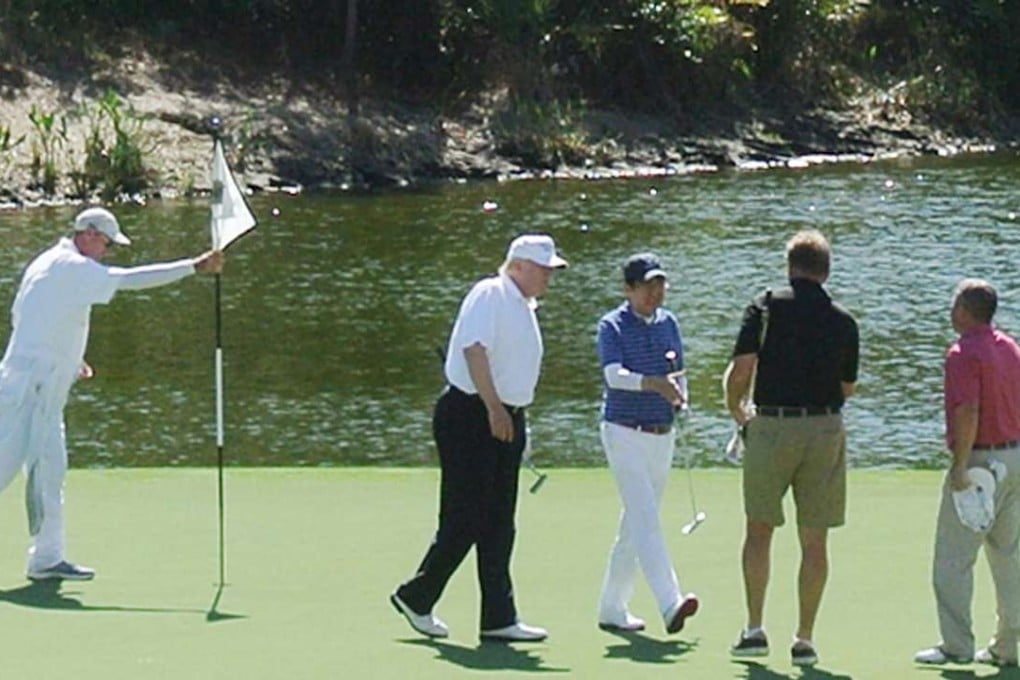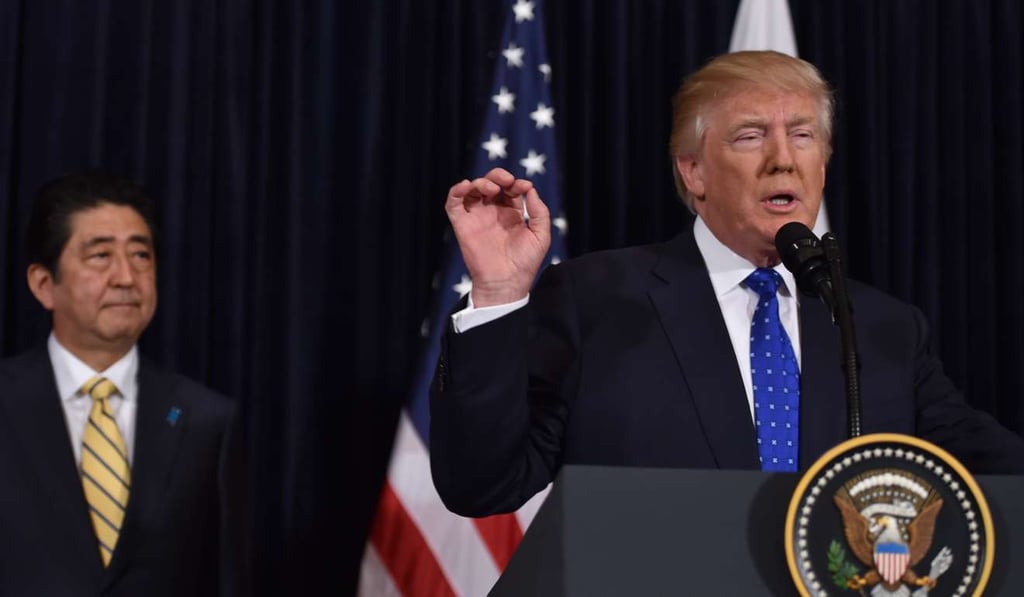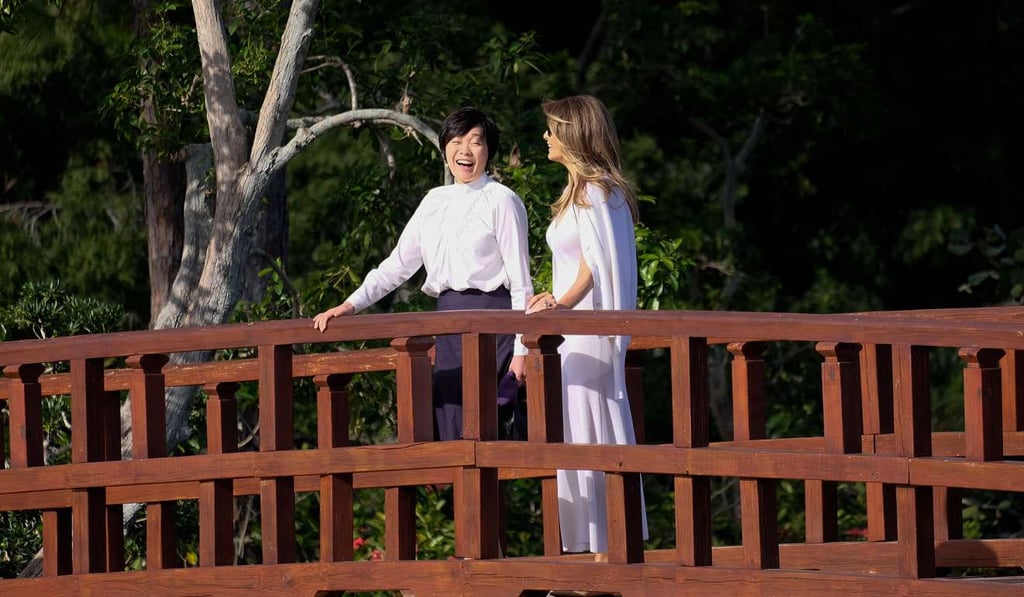Asian Angle | Japan-US: When will the Don start asking for protection money?
Japanese leader gets into the swing of things by presenting the American president with a gold-coloured golf club – yet Donald Trump may drive a hard bargain

Shinzo Abe’s congratulatory message after Donald Trump’s surprise election victory stood out from the crowd of perfunctory ones from other world leaders for its generous praise: “As a very successful businessman with extraordinary talents, not only have you made a great contribution to the growth of the US economy, but now as a strong leader, you have demonstrated your determination to lead the United States.” Soon after, Abe became the only world leader to venture into Trump Tower ahead of the inauguration. Aware of Trump’s love for the game, Abe presented the future US president with a Japanese golf driver, and not just any golf club, but a gold coloured one to match Trump Tower’s shiny penthouse.

The Japanese government’s cleverly tailored engagement of the new US president has paid off handsomely. Only three weeks into the new administration, Trump granted Abe a two-day summit that included a confirmation of US commitments to Japanese security and a round on a 27-hole golf course, giving them plenty of time to develop strong personal rapport.
Japan’s personal diplomacy went into full swing as Abe called Trump by first name in the translated remarks at the White House joint press conference. But can Abe’s personal touch lead to a “Don-Shinzo” friendship better than the “Ron-Yasu” bond between Cold Warriors Ronald Reagan and Nakasone Yasuhiro, or the more recent “George-Junichiro” one between Bush and Koizumi?
To be sure, Abe’s personal chemistry with Trump stands in sharp contrast to the Abe-Obama frigidity. Abe wanted a more forceful China policy from the Barack Obama administration. Yet, especially between 2012 and early 2014, Abe confronted an aloof and cold US president worried about US entanglement in Sino-Japanese confrontations.

With Trump in the White House, Japan now has a clear advantage over its main strategic adversary, China. Trump has picked China hawks for prominent White House positions, reassured Tokyo of US security guarantees and welcomed Japan’s more proactive security posturing. Personal chemistry with the mercurial Trump will be key, and Chinese President Xi Jinping (習近平), a soccer fan, will have fewer options than Abe in his dealings with Trump. Xi has incidentally cracked down on golf as part of his anti-corruption efforts, his government closing down 110 courses in China and labelling it a “sport for millionaires”.
